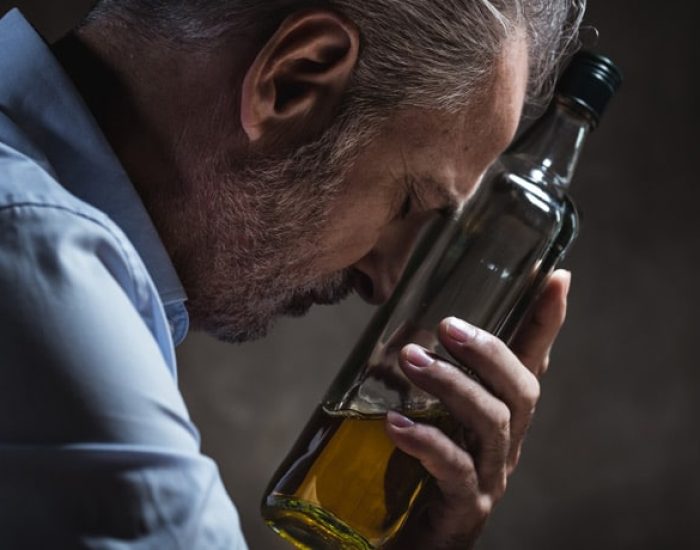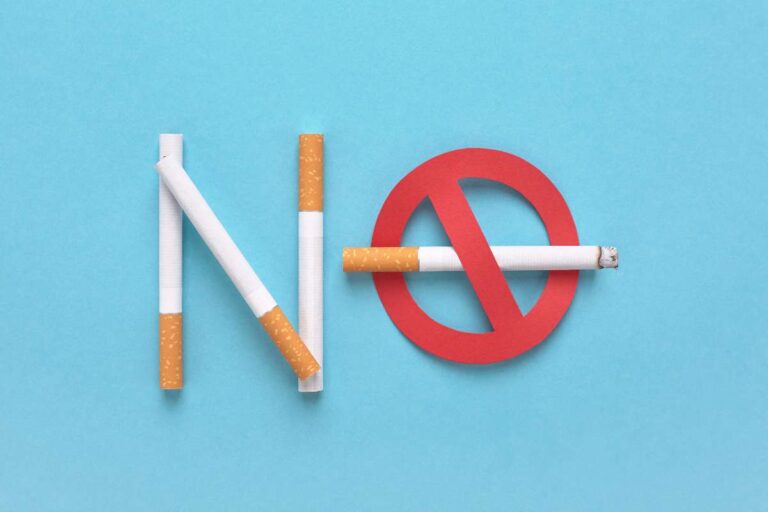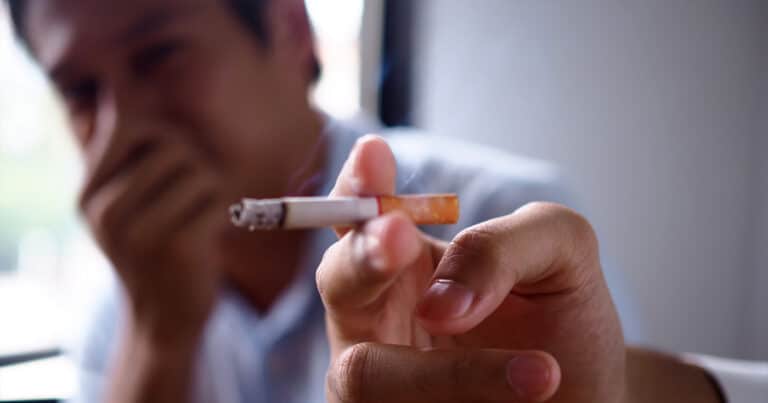What are the signs of alcoholism?
Chronic disease affecting mental and physical health, alcoholism is a condition that can impact all aspects of a person’s life. Directly linked to excessive alcohol consumption, it can quickly turn into a dependency with all the unfortunate consequences that follow.
It is sometimes difficult to detect that a person is suffering from alcoholism. So, what are the symptoms and consequences, and how can one combat this addiction to alcohol?
The warning and revealing symptoms of alcoholism
A person suffering from alcohol dependency develops a series of symptoms that can be, depending on the case, more or less easily noticed. The most obvious is the uncontrollable urge to drink alcohol, but there are others. Here are a few:
- Tendency to drink alone
- Withdrawal from social activities
- Increased tolerance to alcohol
- Mood changes
- Memory problems
- Neglect of personal appearance
- Avoidance of responsibilities
- Withdrawal symptoms when alcohol is stopped (tremors, nausea, anxiety, etc.)
If you exhibit several of these symptoms, you may be suffering from alcoholism.

Alcoholism: consequences with devastating effects
All these symptoms naturally have consequences (sometimes dramatic) on the life of the sick person and their surroundings, both on a private and professional level. They are characterized by behavioral changes and an overall worsening transformation of the person.
- Impact on physical and mental health: excessive alcohol consumption causes, among other things, liver cirrhosis, cancer, strokes, dementia, and mental disorders.
- Degradation of professional performance: the patient shows repeated absences, lateness, decreased performance, and job loss.
- Social stigma: the alcoholic suffers discrimination due to their illness, resulting in employment, housing, and interpersonal relationship issues.
- Loss of self-esteem: the alcoholic loses confidence in themselves, leading to impulsive behaviors, reckless actions, and negative consequences on daily life.
- Relationship problems: the disease causes issues with family, friends, and colleagues due to erratic behaviors, reckless actions, and conflicts.
- Violence and aggressive behaviors: alcohol is a trigger for conflicts, making the person more impulsive and aggressive.
- Social isolation: the alcoholic gradually withdraws from social life, social events, and interactions with others.

How to combat alcoholism?
Being alcoholic is often poorly perceived by the affected person’s surroundings. The stereotypes are often the same: weakness, lack of willpower, or even a matter of choice rather than a disease.
Once the symptoms are clearly established and the disease recognized, the path to returning to normal is long and often punctuated by relapses. So, what strategy should be adopted to give oneself the best chances and reduce or stop alcohol consumption?
Actions to take to stop alcohol consumption
- Acknowledge the problem: the first step is to recognize that you are an alcoholic. If you have difficulty reducing or stopping drinking alcohol, consult your doctor.
- Develop a treatment plan: ask your doctor or a healthcare professional about the possibilities of behavioral therapy, group therapy, and medications that can help you. Some withdrawal methods, such as the laser method, are quick and effective.
- Avoid triggers: for example, social events where alcohol is served or stressful situations.
- Make healthy lifestyle choices: a healthy diet, physical exercise, and sleep can improve your overall health and reduce your alcohol consumption.
- Join a support group: the reference in the field is Alcoholics Anonymous (AA).
- Seek family and friend support: to help find the necessary motivation in your fight.
- Avoid social isolation: isolating yourself can only have negative consequences on your rehabilitation process.
An alternative laser method for your alcohol withdrawal
Besides the means mentioned above to overcome alcoholism, an alternative to restrictive treatments has emerged more than 30 years ago and has proven effective: the soft laser method.
This technique, derived from acupuncture, allows without medication, and in just one session, to end alcohol dependency. By stimulating certain points on the ear with a laser, the therapist disconnects the synapses related to the need for alcohol. After the session, your need to drink disappears.
Overcome your alcohol addiction with Reset Laser Institute
Do you want to put an end to your alcohol consumption? Reset Laser welcomes you to one of its centers located in Belgium. Our therapists use the soft laser method to eliminate your alcohol addiction in a sustainable way. In just one session, you say goodbye to alcohol!
Why Choose RESET Laser Institute
The best method to quit smoking
Specialist
Our therapists are all addiction experts and specialists in laser auriculotherapy cessation.
Effectiveness
Our success rate after one session is over 86%.
Painless
Non-invasive and painless, our therapy is accessible to everyone.

No Stress
You free yourself from addictions and quit smoking without weight gain, stress, or compensation.
Personalized Support
Since each patient is different, we offer personalized support after the session.
1-Year Guarantee
We guarantee our therapy for 1 year in case of relapse.






